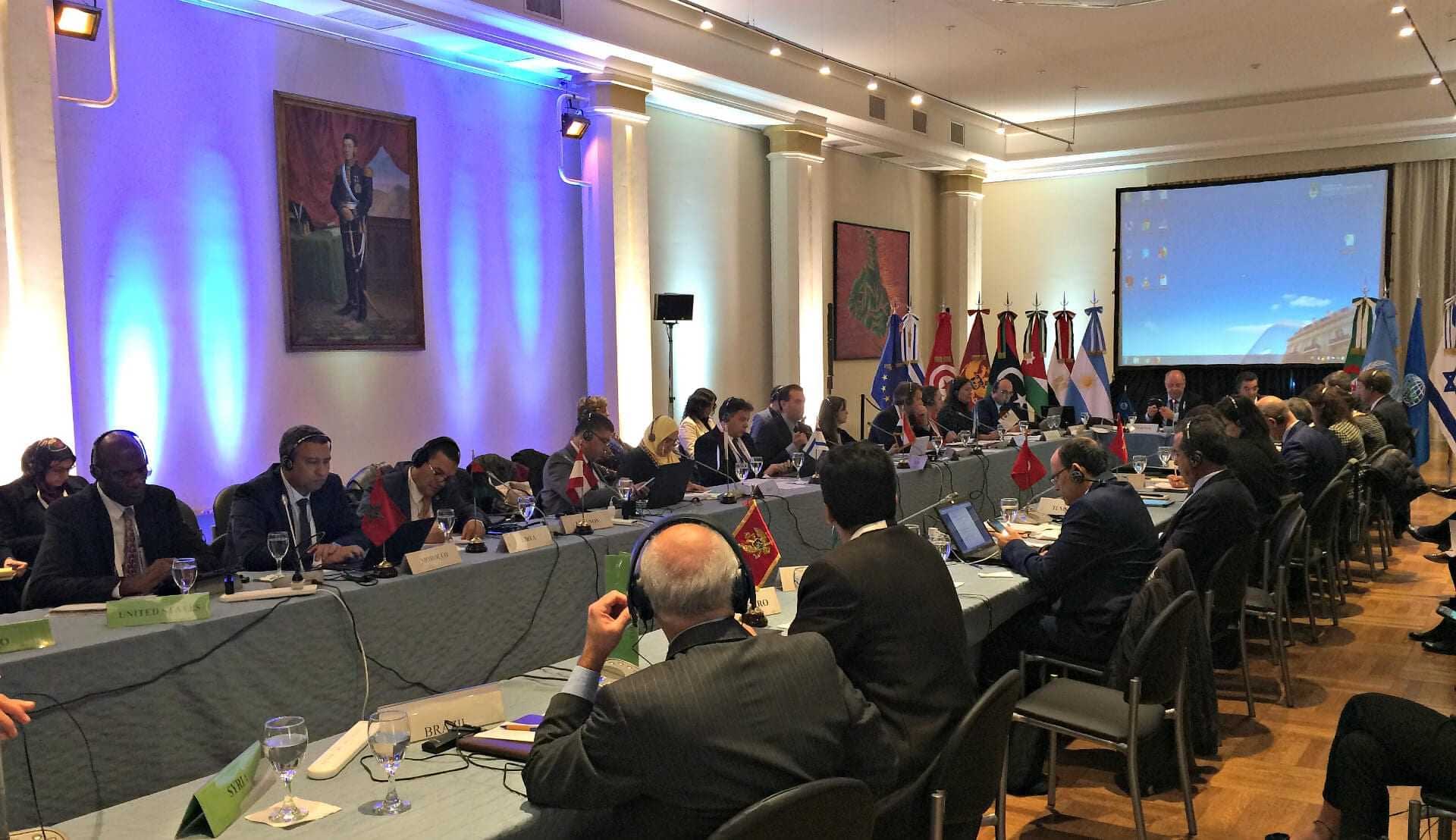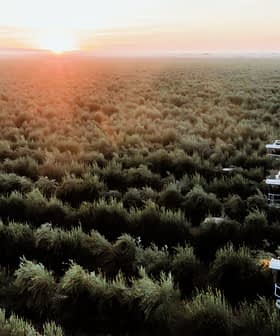Inside the Final Day of the 107th IOC Council of Members Session
Diplomatic and trade tensions loomed large over what was otherwise an uneventful conclusion to the 107th session of the Council of Members meeting of the International Olive Council (IOC), which concluded today in Buenos Aires. Representatives of each member nation took turns reading out the findings of each of the four committees, which were closed
Diplomatic and trade tensions loomed large over what was otherwise an uneventful conclusion to the 107th session of the Council of Members meeting of the International Olive Council (IOC), which concluded today in Buenos Aires.
I hope this meeting achieves our desired goals. Syria rejoining the IOC would be beneficial for the people and economy of our country.
Representatives of each member nation took turns reading out the findings of each of the four committees, which were closed to the press. At the end of the session, all of the corresponding draft decisions were unanimously adopted.
The diplomatic tensions came to light during the status of accessions, ratifications of the International Agreement on Olive Oil and Table Olives of 2015 portion of the session.
Syria, which is one of three nations in the process of acceding to the IOC, has formally requested to rejoin the pay-to-play organization after being suspended due to outstanding debts.
Upon invitation, the Syrian delegate addressed the session, urging their application to rejoin the organization to be expedited. At the time of writing, not all of the delegates’ names had been made available to the press.
“I hope this meeting achieves our desired goals,” the Syrian delegate said. “Syria rejoining the IOC would be beneficial for the people and economy of our country.”
According to the delegate, Syria produced between 150 and 175 tonnes of olive oil last year and the olive oil sector makes up about five to nine percent of the country’s agricultural income.
Syria joined the IOC in 1997 and remained a member until it was suspended in 2015 for failing to fulfill its financial obligation. The Syrian delegate blamed its lack of payment on a financial crisis caused by international sanctions.
Syrian government officials and entities are currently under sanction from the United Nations, European Union and the United States, among others, for their role in a civil war in which the government has been accused of numerous human rights violations and war crimes.
Once the Syrian delegate had finished speaking, the Turkish delegate immediately requested the floor. She said that Turkey, which has not had diplomatic ties with Syria since 2011, unequivocally opposed Syria’s application.

Daniel Dawson for Olive Oil Times
“We are opposed to Syria’s reaccession to the council,” the Turkish delegate said. She later told Olive Oil Times that she could not disclose the reasons for Turkey’s opposition. The Syrian delegates left the meeting soon after this episode and did not return.
Albania and Iran are the other two countries in the process of accession. Albania has submitted its formal application and, along with those of Syria, its accession conditions will be discussed at the IOC’s meeting that is scheduled for September in Madrid.
Meanwhile, Iran’s parliament has approved the treaty and already paid its €26,085 contribution fee.
“The parliament of Iran has announced its investment in the IOC,” Mehdi Karimi, Iran’s delegate, said.
During the Economic and Promotion Committee’s report, the European Union delegate expressed his concerns about the United States’ trade sanctions against Spain. The delegate said that the anti-dumping investigation of Spanish black olives into the United States has already led to a 41 percent decrease in exports of the product.
According to the delegate, who addressed the session in Spanish, Spain does not accept the tariffs and will appeal them to the World Trade Organization. The tariffs will be formally approved by the United States at the end of July.
Separately, a European Commission spokesman condemned the American tariffs earlier this week in Brussels, labeling them protectionist and unfounded.
“The decision by the United States Department of Commerce to impose unreasonably high and prohibitive duties anti-subsidy and anti-dumping duties on Spanish olives is simply unacceptable,” a Commission spokesman told Reuters. “This is a protectionist measure targeting a high-quality and successful EU product popular with US consumers.”
Other topics discussed at the session included the 2019 IOC budget, boosting online sales, sponsoring a Southern Hemisphere competition for small producers (those who make less than 150 liters of olive oil each year) and creating a more uniform system for establishing chemical and organoleptic qualities of olive oil across member nations.
The Chemistry and Standardization Committee discussed the standardization of quality assurance controls and commissioned more studies on the nutritional and health benefits of olive oil.
The Turkish delegate further advocated for the member nations having uniform customs procedures for controlling the quality of imported olive oil. She also urged the IOC to take a more active role in mediating disputes between member countries.
“The IOC should play a more active role in arbitration and more of the onus of quality control should be on the importing country,” she said.
Meanwhile, the Advisory Committee had analyzed issues pertaining to organoleptic testing at a meeting held earlier this year in Amman, Jordan. The committee concluded: “implementation of organoleptic test results does not offer enough legal certainties to countries, specifically in trade.”
In Spain, both the National Association of Industrial Packers and Edible Oil Refiners (Anierac) and the Spanish Association of the Olive Oil Exporting Industry and Commerce (Asoliva), have voiced similar concerns.
The committee said it had made recommendations, which were adopted at the end of the session. The details of these recommendations have not yet been made public.
The session wound down with an opportunity for observers to address to the IOC members. Representatives from Bolivia, Brazil, Chile, Peru, the United States and the Inter-American Institute for Cooperation on Agriculture all thanked the council for inviting them to attend.
Brazil’s delegate concluded the meeting by enthusiastically announcing that they were beginning the process of joining the IOC.
“Brazil is taking the necessary measures to become a member of the IOC,” he said. “It’s of great importance for Brazil to become a member of this council.”








